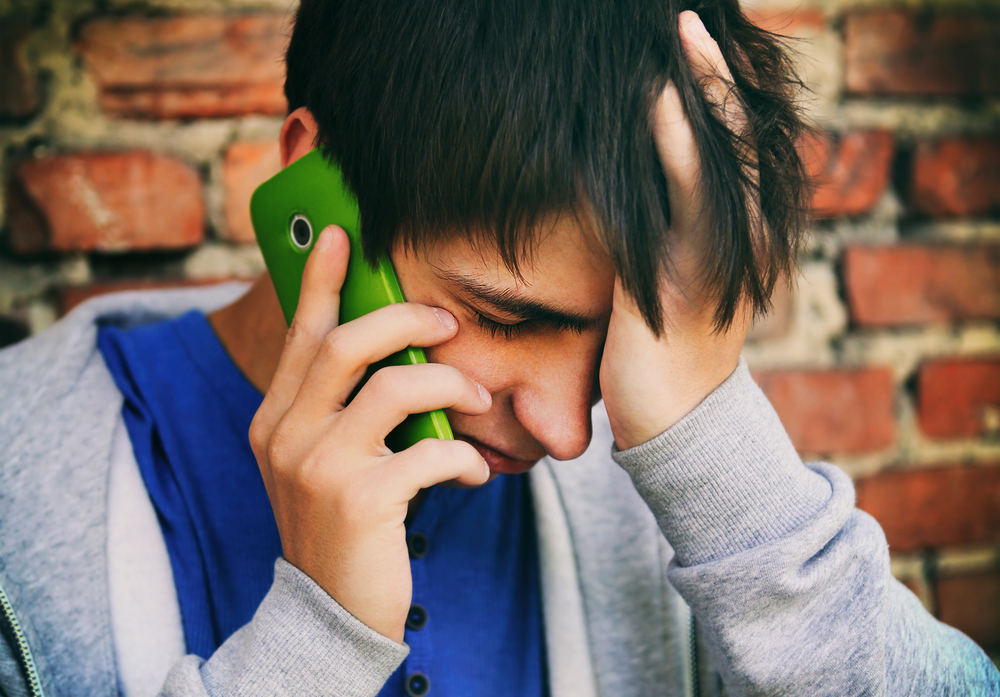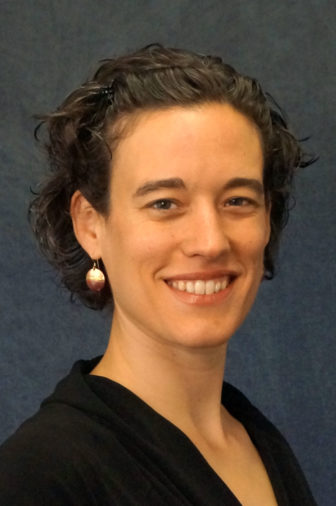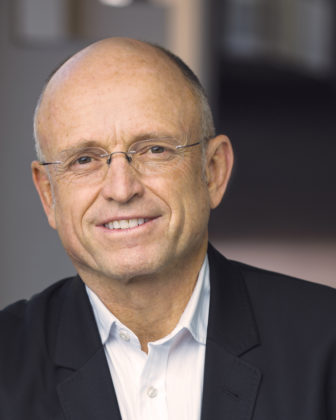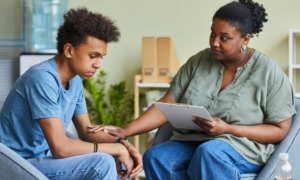
Sabphoto/Shutterstock
.
There is a crisis of well-being in this country, and it’s felt most poignantly by our youth. One-third of high school students experience persistent feelings of sadness or hopelessness — with this number soaring to two-thirds for lesbian, gay or bisexual youth, according to recent data. In total, 1 in 6 high school students seriously consider suicide, with 13 percent creating a plan.
Every day, more and more youth attempt and die by suicide, now the second leading cause of death for teenagers.

Elizabeth Markle
Research identifies the multiple conditions driving these trends: bullying, substance misuse, stigma, lack of access to mental health care and inequity, among others. However, while a national discourse continues about interventions, one solution remains mostly overlooked: creating opportunities for youth themselves to engage with their peers in prevention, care and recovery, which could, at the same time, help impart personal and collective skills necessary to thrive throughout life.
If, and when, teens reach out for emotional support, it is usually to friends — yet many teens do not have this type of support system and look for peers elsewhere, such as online and through youth peer lines. For most day-to-day concerns, this works well enough, but these naturally occurring resources are largely unappreciated, undercultivated, underleveraged and by no means abundant.
In addition, the skills of being a good friend — listening, validating and asking thoughtful and supportive questions, even knowing when to involve an adult — are not intentionally taught or valued for our youth.
And while some programs, like Youth Mental Health First Aid, have begun developing programs that teach youth to support each other, these types of programs focus on what to do once a mental health problem presents.
Perfect time to expand
To go farther upstream and hopefully prevent emotional distress from becoming a serious problem, our nation must invest in developing these transferable competencies of active listening, supporting and promoting emotional well-being for youth, by youth.

Tyler Norris
While it seems like a no-brainer, the programs that fill this void are few and far between. But they do exist and there is a cost-effective opportunity to scale and spread.
For instance, youth peer hotlines train youth, many of whom have personal “lived” experience with challenging circumstances, to be peer counselors to other teens via phone, text, chat and/or email. The demand is massive — Teen Line in Southern California handles more than 17,000 calls, texts and emails annually and organizes outreach events, which are attended by nearly 40,000 people each year.
Globally, youth peer hotlines generate three critical streams of value:
- Supportive contact, resources and crisis intervention for youth. “If y’all [Youth Line] weren’t here, neither would I be here” —anonymous texter. Volunteers listen, care, inform, invite those who would never reach out to adults to seek support and (when needed) provide critical crisis intervention. They have steady supervision, guidance and backing of mental health clinicians who are dedicated to ensuring the safety and well-being of callers and counselors.
- Deep training, mentorship and preprofessional development for peer counselors. Youth peer hotlines provide comprehensive training to volunteers, going beyond competence and skill acquisition by extending into mentorship and personal/professional guidance, which imparts skills necessary to have a high sense of self-worth.
- Unleashing trained, activated, mental health-savvy, empathic, courageous and skilled youth in schools and communities. Many of the hotline volunteers act as mental health awareness advocates, traveling to schools to educate peers about mental health and available resources. They become the face of mental health in their communities, seen as ambassadors for change and a live demonstration of direct and shameless speech about mental health, which reduces stigma and creates conditions for youth everywhere to speak up, get help and give help.
Youth lean on their friends for support and friends want to provide support. Yet, at the same time, youth are not getting all the support they need. The nation must try something different to ensure youth develop social-emotional skills and are happy, healthy and thriving.

Andrew Charroux
As part of a system of care, youth peer lines provide an important means for reducing stigma and potentially preventing mental health problems from developing into crises. But there are only six such lines across the country.
To reverse the trends, the nation — all levels of government, community organizations and philanthropies — can invest in innovative solutions, like youth peer lines, that provide the types of support youth respond to and need to thrive.
Well Being Trust is advancing this work — partnering with and convening the existing peer lines around the country to uplift and standardize their work, improve their impact and co-create an alliance that can drive the spread of successful models and practices, driving positive impact across the country.
Elizabeth Markle, Ph.D., is a licensed psychologist, professor and chair of Community Mental Health at California Institute of Integral Studies and the founder of Open Source Wellness. She leads the Youth Peer Initiative at Well Being Trust.
Tyler Norris, M.Div., is chief executive of Well Being Trust, an impact philanthropy with a mission to advance the mental, social and spiritual health of the nation. He has an extensive background as a social entrepreneur, animateur and trusted advisor to philanthropies, health systems, government agencies and collaborative partnerships.
Andrew Charroux is a 17-year-old volunteer at Teen Line — a teen-teen suicide and support hotline — at which he speaks with youth from around the world. Andrew also is involved in Teen Line’s outreach and education efforts across Los Angeles.































